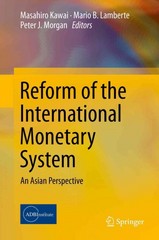These are the questions or statements that need answers. Hope you can answer it with honesty. Thank you so much
Chapter 12: Milton Friedman and Monetarism Chapter Overview: Milton Friedman was an American economist who belonged to the Chicago School of Economic Thought, and who gained prominence following the recession of the 1970's_If John Maynard Keynes was the most influential economist in the first half of the twentieth century, Friedman took the spot in the second half of the same century. His monetarist approach in macroeconomics posed a challenge to Keynesian macroeconomics. Friedman's approach played a significant influence on economic policymaking To him is attributed the now famous quote in Economics, "There is no such thing as a free lunch *.Milton Friedman (1912 - 2006) (image source: https://en.wikipedia.org/wiki/Milton_Friedman#/media/File:Portrait_of_Milton_Friedman.jpg) During Friedman's time, macroeconomics was dominated by Keynes who held that fiscal policy is more important than monetary policy; that government spending should be used to neutralize the volatility of the business cycle. Milton Friedman, on the other hand, was a vocal critic of government power and was convinced that free markets operate better. He contended that voluntary interactions between consumers and business often produce better results compared to government decrees. Friedman believed that competitive markets work efficiently to allocate resources and that central banks are responsible for inflation. Although he opposed the existence of the Federal Reserve Bank of the USA, Friedman advocated a central bank policy aimed at keeping the growth of money supply at a rate commensurate with the growth in productivity and the demand for goods.Friedman' Monetarism Monetarism is the school of thought that emphasizes on the role of government in controlling the amount of money in circulation. Monetarists assert that variations in money supply have major influences on national output in the short run and on the price level in the long run. They believe that the objectives of monetary policy are best met by targeting the growth rate of money supply rather than by engaging in discretionary monetary policy. Permanent Income Hypothesis Friedman's first breakthrough in the field of Economics is his"Permanent Income Hypothesis". According to him, a person's consumption and saving decisions are more greatly imparted by permanent changes to income rather than changes to income that are perceived as ephemeral (temporary, fading, or transitory). According to Friedman, the strongest influence on consumption is one's average lifetime income. No one knows what his or her average lifetime income will be but people can generally figure out if they are earning more or less than that average. He claimed that people gear their income to their expected earnings more than to their current income (basis of Keynes's consumption function).If a factory worker earning 120,000 pesos a year expects to remain a factory worker, she can estimate her future earnings until she retires and as such base her expenses on a more or less permanent income. Suppose her income suddenly contracts because of a factory lay-off, she would not cut back sharply on her consumption since she knows she'll be back on the job in the future. She has to continue paying her rent, electricity, water, and continues to eat three times a day. Further, Friedman's hypothesis claims that if a person suddenly wins the lottery, she/he will spend some of it because it raises his/her permanent income but he/she will only spend a small part of it. After winning the Nobel Prize in Economics in 1976, Friedman brought about a renewed emphasis on prices and inflation, a direct counter to Keynes's employment, interest, and public policy. He won a major intellectual victory after decades of Keynesian policies that ended in the late 1970s.1. Define and explain monetarism. 2. Evaluate and discuss Friedman's "permanent income hypothesis "re consumption. 3. Discuss the importance of monetary policy vis-a-vis changes in the money supply and its effect on the general price level











